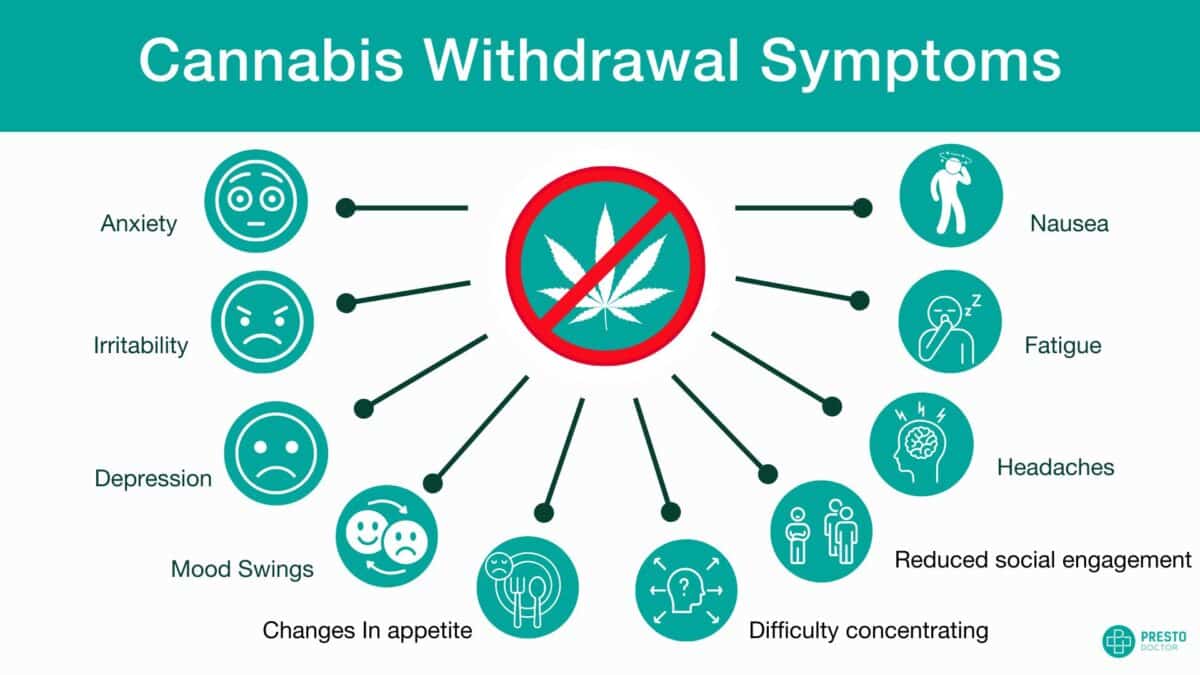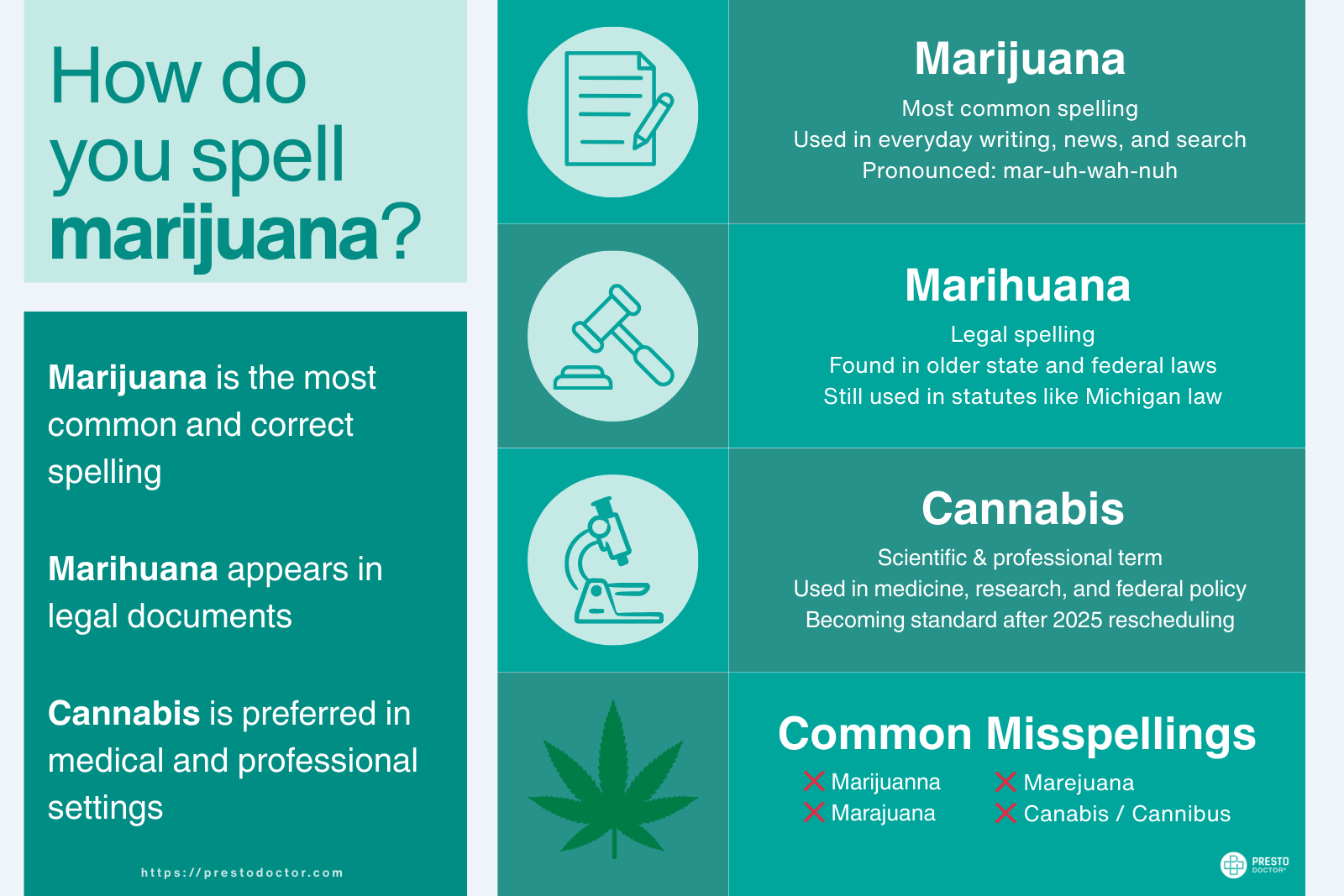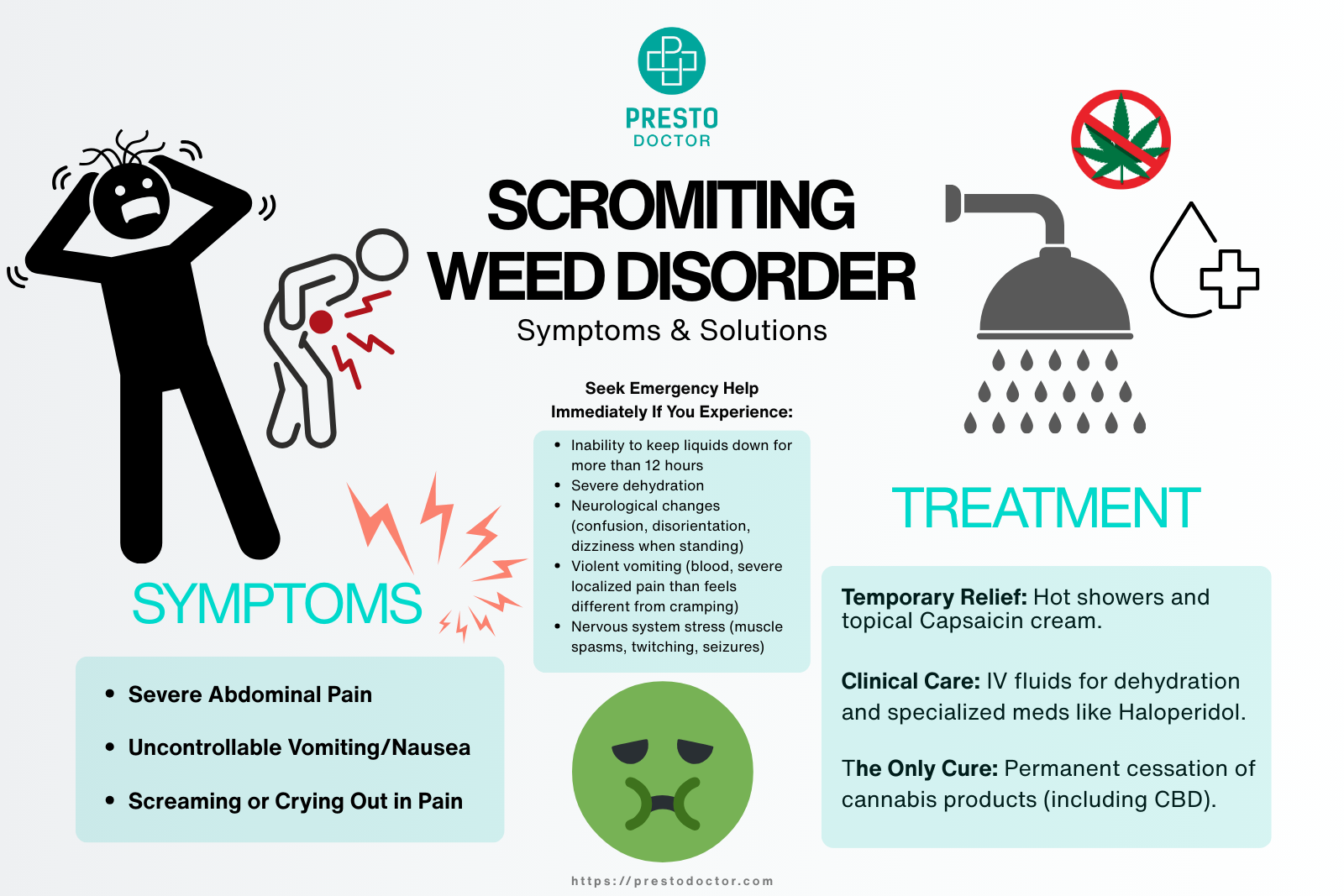
Marijuana use has become increasingly common worldwide, with many individuals using it for recreational, medicinal purposes, and also both. However, prolonged use can lead to dependency, making cessation challenging. Unfortunately, some people experience a marijuana withdrawal, and have clear marijuana withdrawal symptoms. Understanding the marijuana withdrawal process is crucial for those considering quitting, as it equips them with knowledge to navigate the journey successfully. Those quitting marijuana often experience similar symptoms in a periodic order. This can be known as the marijuana withdrawal timeline.
What is Marijuana Withdrawal?
Marijuana withdrawal refers to the physical and psychological symptoms experienced when a regular user abruptly stops or significantly reduces their cannabis consumption. These symptoms arise due to the body’s adaptation to the presence of THC (tetrahydrocannabinol), the active compound in marijuana.
Marijuana Withdrawal Timeline
Immediate Phase (First 1-2 Days)
In the first 24-48 hours after cessation, users often experience initial psychological symptoms like irritability and restlessness. Physical symptoms such as headaches and mild nausea may also emerge.
Acute Phase (Days 3-7)
This period marks the peak of withdrawal symptoms. Cravings for marijuana intensify, accompanied by mood swings, sleep disturbances, and heightened anxiety. Physical symptoms, such as sweating and loss of appetite, may also be prominent. Many people who quit marijuana often experience depression within the marijuana withdrawal timeline. This is due to the body adjusting to function without THC, however this typically subsides around week two.
Subacute Phase (Weeks 2-4)
During this phase, symptoms gradually begin to subside. Sleep patterns and appetite typically improve, though mild psychological symptoms like low motivation may persist.
Long-Term Recovery (1 Month and Beyond)
Most physical symptoms resolve within a month, but psychological effects such as cravings and emotional instability may linger. Developing healthy coping mechanisms is essential for long-term recovery as well as sustainability.
The marijuana withdrawal timeline varies from person to person, however this is a general expectation for what typically happens during cannabis withdrawal.
Clusters of Marijuana Withdrawal Symptoms
More than half of individuals using cannabis for pain report clusters of withdrawal symptoms, such as irritability, cravings, sleep issues, and mood disturbances. These symptoms can sometimes be mistaken for underlying medical conditions.
Marijuana Withdrawal Symptoms
Common Psychological Symptoms
- Anxiety
- Irritability
- Depression
- Mood swings
Common Physical Symptoms
- Headaches
- Fatigue
- Nausea
- Changes in appetite (increase or decrease)
Behavioral Symptoms
- Difficulty concentrating
- Intense cravings
- Reduced social engagement
Worsening Symptoms Over Time
About 10% of cannabis users experience worsening withdrawal symptoms, including disrupted sleep, appetite changes, and mood instability. This highlights the progressive nature of cannabis withdrawal in some users.
Cannabis Withdrawal Syndrome
Cannabis Withdrawal Syndrome describes the presence of multiple withdrawal symptoms that increase the likelihood of developing cannabis use disorder. Recognizing this syndrome is key to understanding the challenges associated with cessation.
How Long Do Marijuana Withdrawal Symptoms Last?
The duration of marijuana withdrawal symptoms varies based on factors such as frequency of use, dosage, and individual metabolism. Typically, symptoms peak within the first week and diminish significantly after two to four weeks. Some psychological symptoms may persist for several months in heavy users.
Understanding Tolerance and Withdrawal
Tolerance develops when the body becomes accustomed to regular marijuana use, requiring higher doses to achieve the same effects. When usage is stopped, the body struggles to adjust, leading to withdrawal symptoms. This cycle highlights the relationship between tolerance and withdrawal.
The Uncomfortable Feelings of Abruptly Stopping Marijuana
Sudden cessation of marijuana use can lead to various discomforts, including irritability, restlessness, and physical unease. Gradual reduction of consumption may help mitigate these symptoms for some individuals.
Tips for Managing Marijuana Withdrawal Symptoms
Psychological Coping Strategies
- Practice mindfulness and meditation to manage stress.
- Engage in therapy or support groups for emotional support.
Physical Coping Strategies
- Exercise regularly to boost endorphins and reduce stress.
- Maintain a balanced diet rich in fruits, vegetables, and lean proteins.
- Stay hydrated and prioritizhttps://prestodoctor.com/content/general/how-long-does-thc-stay-in-urinee good sleep hygiene.
Behavioral Adjustments
- Create a structured daily routine.
- Avoid environments and situations that trigger cravings.
- Replace marijuana use with positive habits, such as hobbies or social activities.
Support Quitting Cannabis
A study analyzing the QuitCannabis subreddit highlighted that online communities play a crucial role in providing support for individuals attempting to quit cannabis. The research found that 38% of users exhibited mild symptoms of cannabis use disorder (CUD), while 12% showed severe symptoms. The subreddit served as a space for individuals to share experiences, seek advice, and receive encouragement, with over 80% of comments offering positive reinforcement or practical quitting strategies. These findings suggest that online peer support can complement traditional recovery approaches by fostering community and therefore reducing isolation (Sowles et al., 2018).
Best Foods for Marijuana Detox
Diet plays a vital role in supporting the body during marijuana detoxification. Consuming the right foods can help alleviate withdrawal symptoms while restoring balance to the body.
Hydrating Foods
- Cucumber and Watermelon: Rich in water content, these foods help combat dehydration while helping to flush out toxins.
- Citrus Fruits: Oranges, lemons, and grapefruits boost hydration and provide essential vitamin C.
Foods Rich in Antioxidants
- Berries: Blueberries, strawberries, and blackberries are loaded with antioxidants that combat oxidative stress.
- Spinach and Kale: Leafy greens support liver detoxification and overall health.
High-Fiber Foods
- Whole Grains: Brown rice, quinoa, and oats promote digestive health and assist in toxin elimination.
- Legumes: Beans, lentils, and chickpeas are excellent sources of fiber and nutrients.
Protein-Rich Foods
- Lean Meats and Fish: Chicken, turkey, and salmon provide amino acids crucial for brain function and mood stabilization.
- Nuts and Seeds: Almonds, walnuts, and flaxseeds are great sources of healthy fats and protein.
Herbal Teas
- Chamomile and Peppermint Tea: Soothe anxiety and digestive discomfort.
- Green Tea: Contains catechins that support detoxification.
When to Seek Professional Help
If marijuana withdrawal symptoms significantly impact daily life or lead to severe emotional distress, seeking professional help is crucial. Therapists and medical professionals can offer tailored treatments, including cognitive-behavioral therapy and medication, to ease the process.
Conclusion
Quitting marijuana can be a challenge, but also a rewarding journey. While marijuana withdrawal symptoms may feel overwhelming initially, they are temporary and manageable with the right strategies. Building a strong support system, adopting healthy coping mechanisms, and seeking professional help when needed can pave the way for a successful recovery.
FAQs
- What are the first symptoms of marijuana withdrawal?
- Anxiety, restlessness, and irritability are often the earliest symptoms.
- Can withdrawal from marijuana cause physical symptoms?
- Yes, common physical symptoms include headaches, nausea, and changes in appetite.
- Is marijuana withdrawal dangerous?
- While typically not life-threatening, withdrawal can be uncomfortable and challenging.
- What is the fastest way to get through marijuana withdrawal?
- Combining professional support with self-care strategies like exercise and mindfulness can help.
- How long does marijuana stay in the system?
- The duration depends on factors such as frequency of use and individual metabolism but typically ranges from a few days to several weeks.






